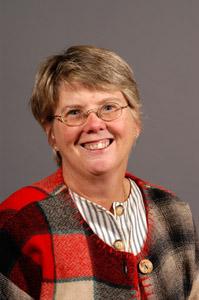A New Symbol for a New Generation

by Mara Donaldson, professor of religion
When Jorge Mario Bergoglio was elected pope in March 2013, he was a man of “firsts.” The first to take the name Francis; the first Jesuit; the first from the Americas; but, what I remember most were the first pictures of the newly elected pontiff washing the feet of 12 incarcerated young men and women during the traditional foot-washing ceremony during Holy Week. Not all were even Catholic—two were Muslim. The ritual of foot washing is usually done in a sanctuary and is a symbol of humility and service, but here was something that looked traditional and very new; surprising and disorienting at the same time. Symbols are powerful, and this one captures for me what matters most in the upcoming papal visit. Pope Francis has become a living symbol for a new generation.
We know how critical he is of economic inequality, rampant consumerism and the dangers of “spiritual worldliness.” His recent encyclical on climate change, Laudato Si’, links global warming to both consumerism and irresponsible development. To many, these are only economic, social and political issues. For the pope, however, they are deeply rooted moral, religious, catholic issues.
“Humility” and “reformer” are words used frequently to describe the pope, but I think his emphasis on “service,” as in the foot washing ritual, and “responsibility,” as in his writings on social justice and climate change, are equally important descriptors. So far, he is not so much reforming the church—the ordination of women, for example, is not on the table—as transforming it. However, none of these terms captures the excitement and anticipation of his visit like my students did this week: “My family is culturally Catholic,” one said, “and my parents never cared who the popes were or what they said. But now my mother is a huge fan of Pope Francis and reads and watches everything. She says he’s a rock star.” Another: “My parents are atheists, but my father has started sending me articles about the pope with little notes attached: This is what religion is supposed to be.”